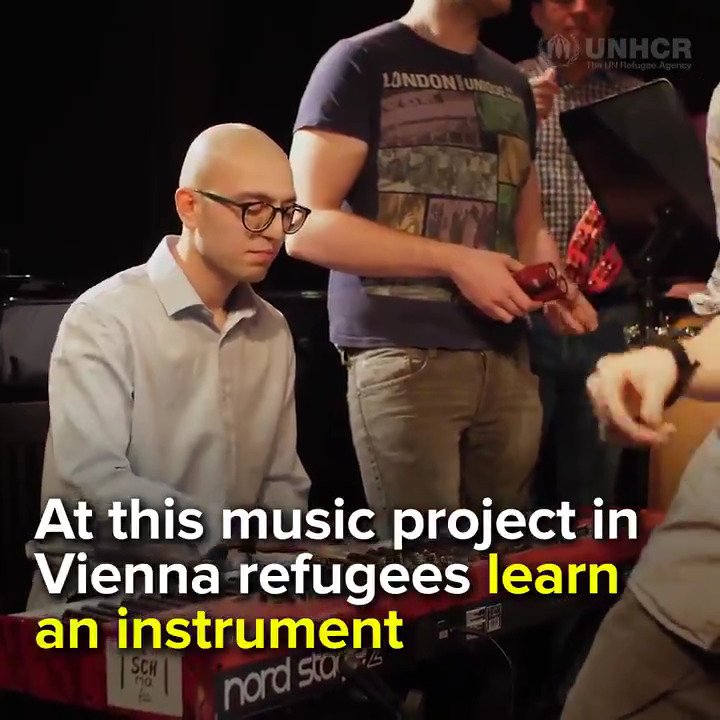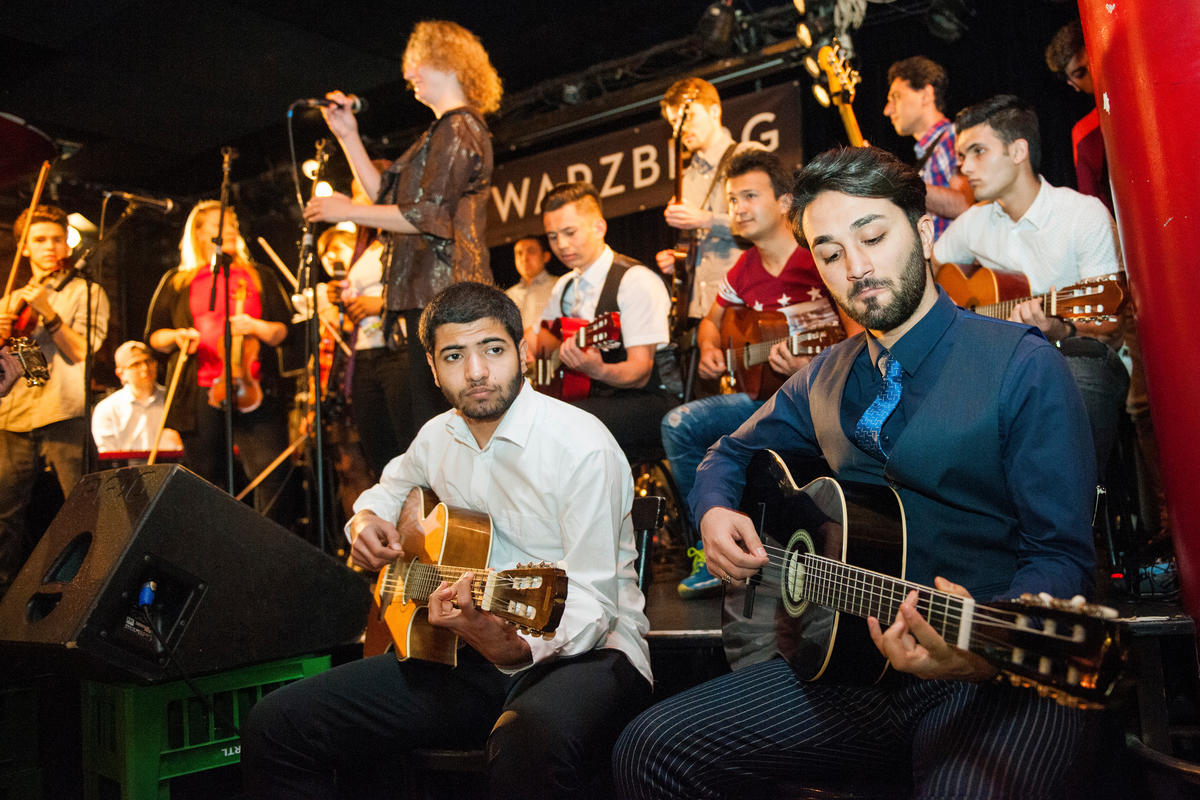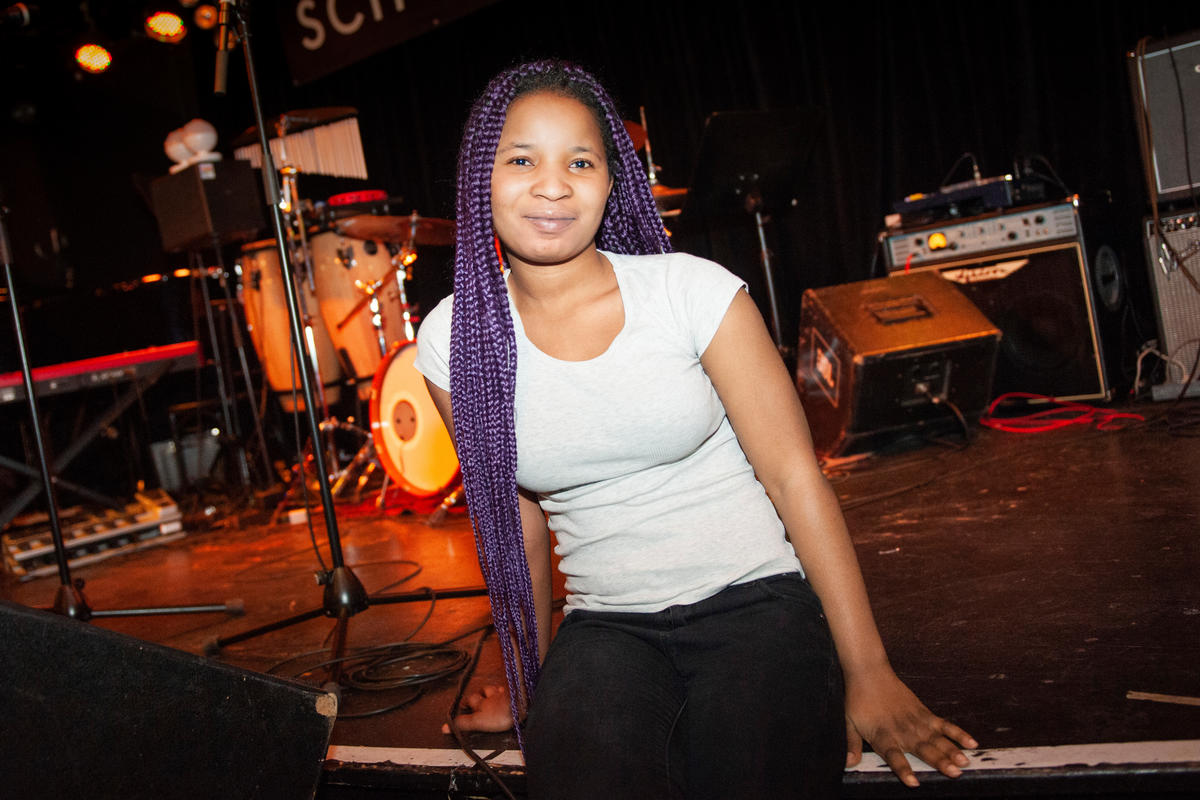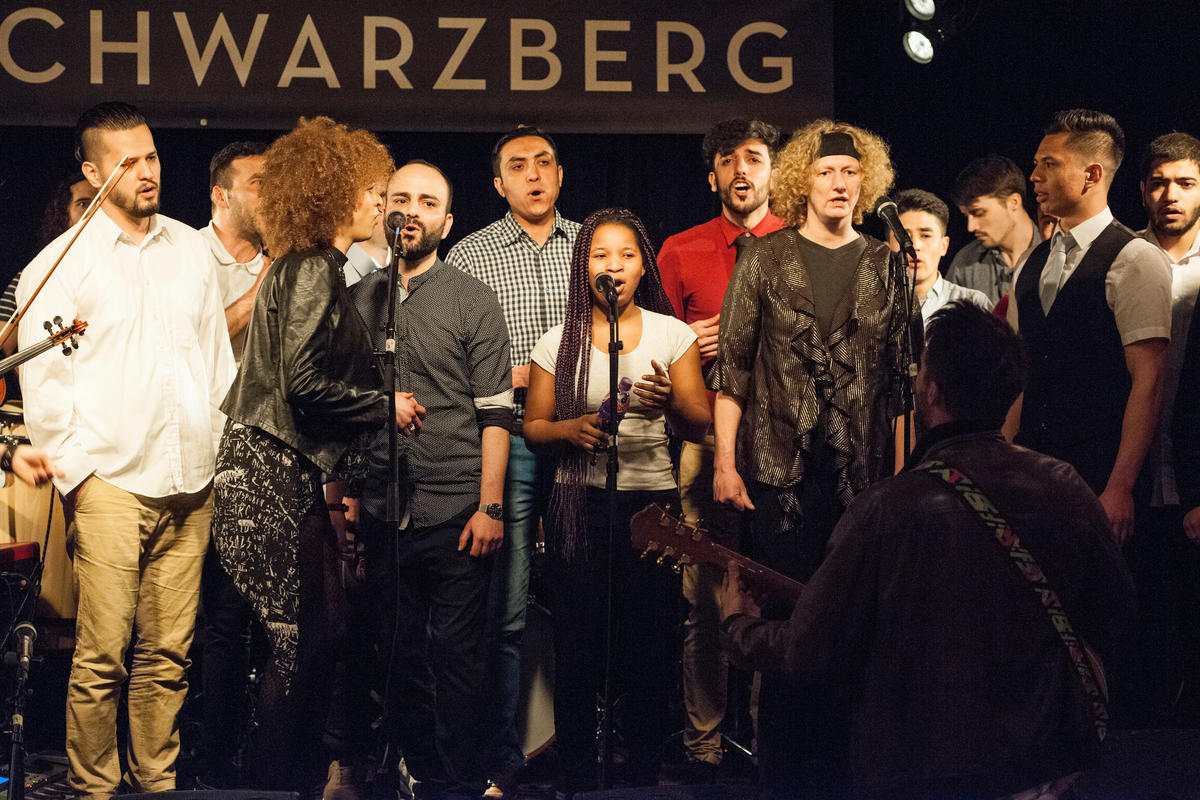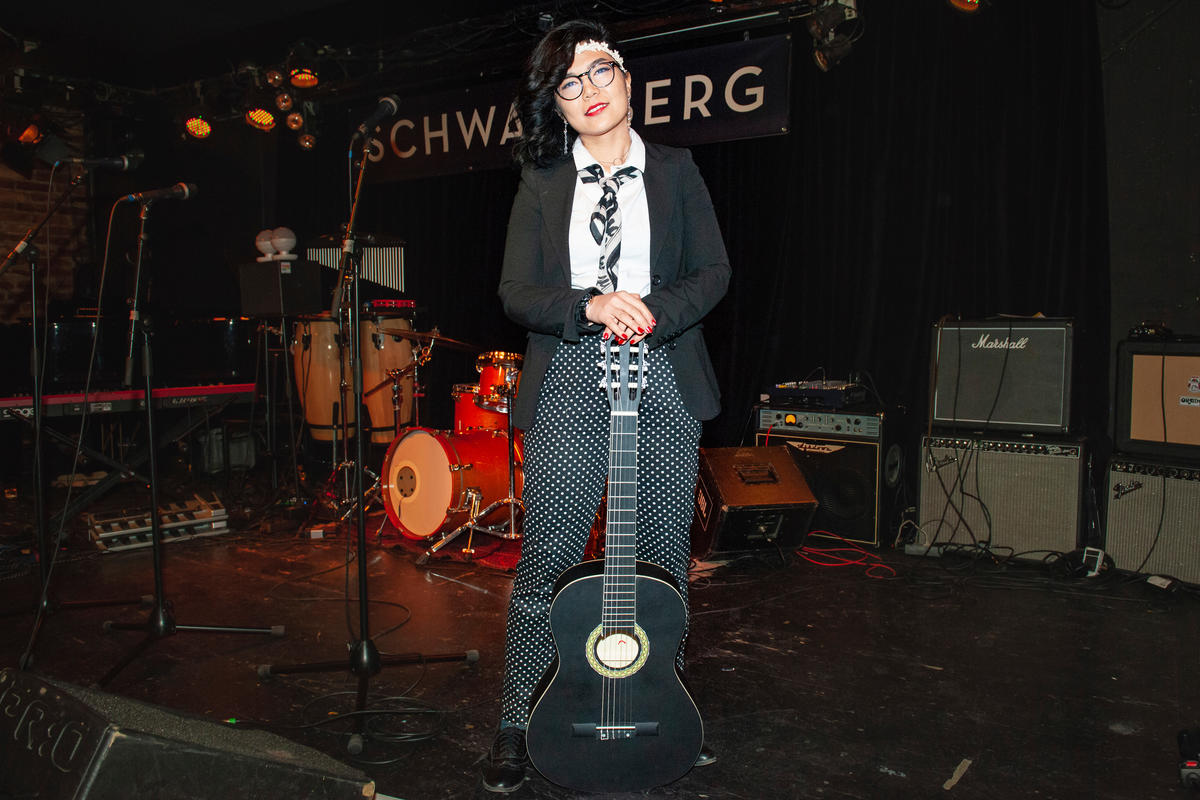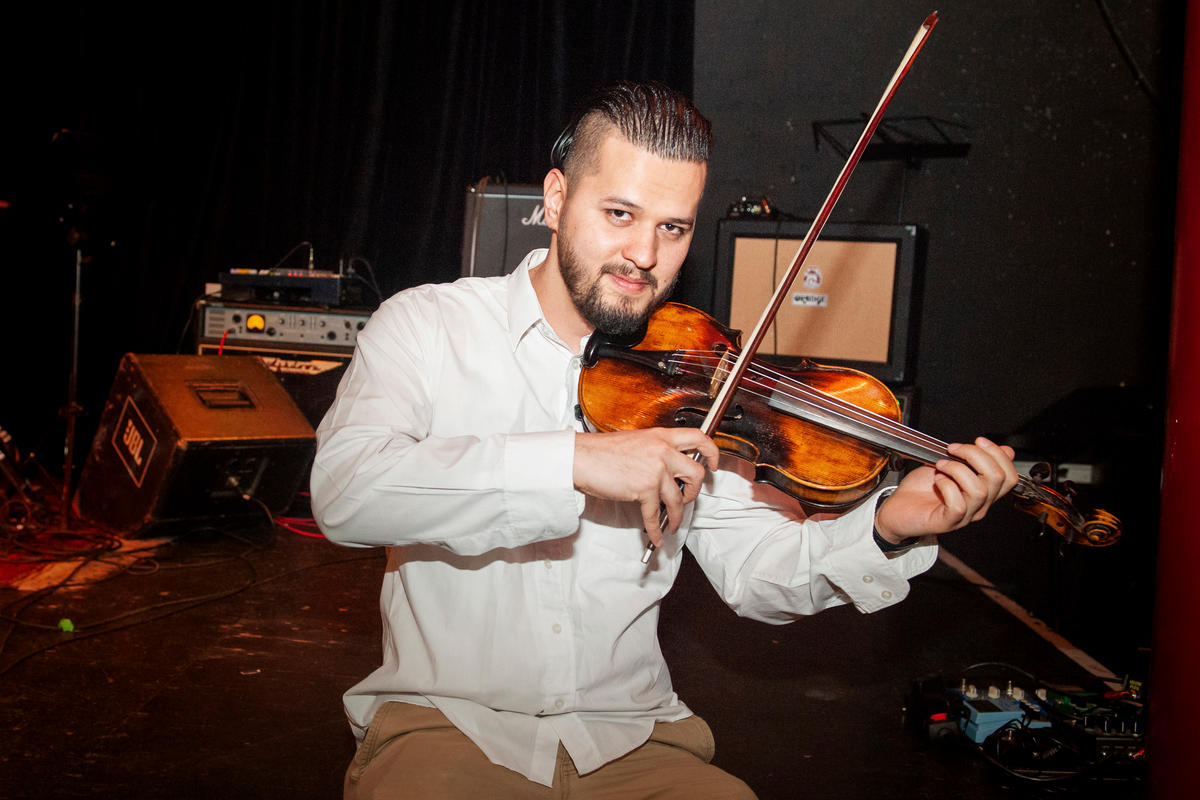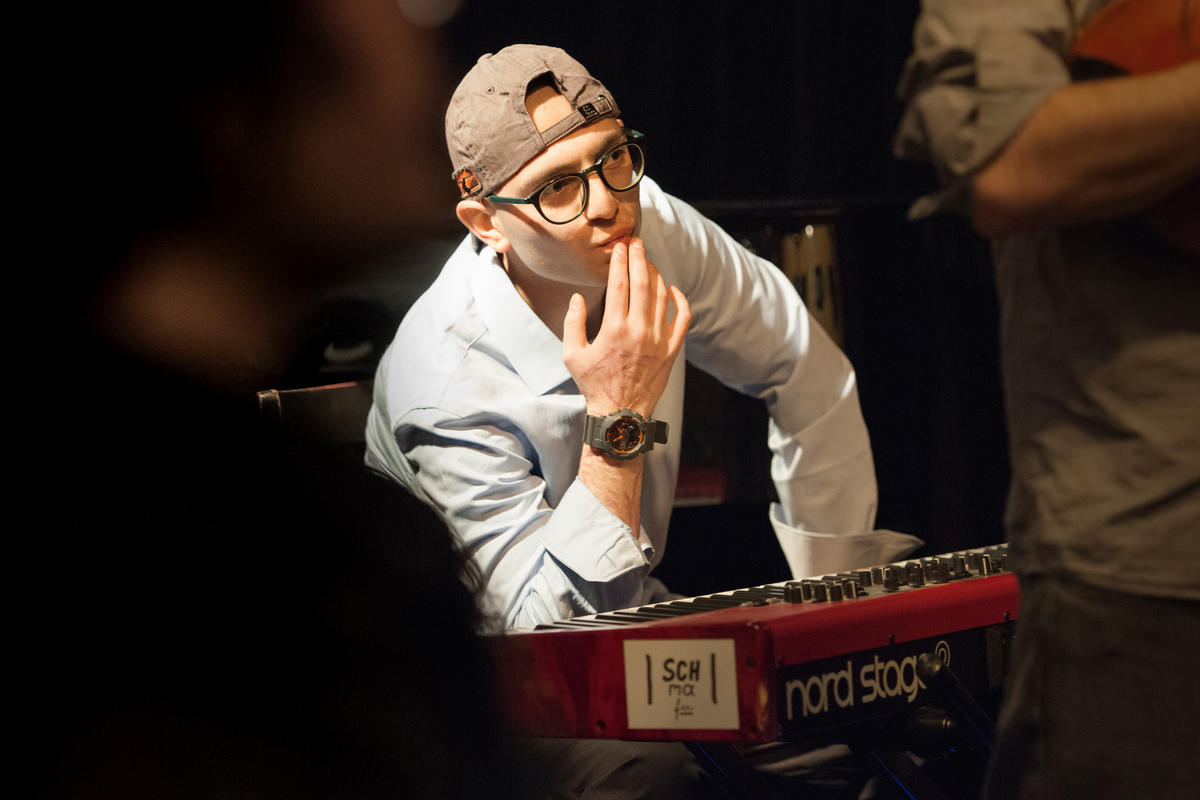Refugees and music students strike a chord in Vienna
Refugees and music students strike a chord in Vienna

VIENNA, Austria – On a Saturday night at the Schwarzberg music pub, the crowd is going wild. Refugees are jamming with music students who have been teaching the newcomers how to play their instruments.
Milad Osman, 23, from Afghanistan, is playing a short piano solo on the stage, even though he has only been learning for two months.
“I am so proud of him,” says Visar Kasar, 23, from Kosovo, who is studying composition at the Conservatory for Jazz and Popular Music, known as the Jam Music Lab. Visar has been teaching Milad piano as part of a musical exchange called “Unisono”.
Unisono is an initiative of the Vienna branch of Live Music Now, an international organization founded by violinist Yehudi Menuhin that takes music into closed institutions such as care homes and prisons.

Ute Ulrike Schmidt, project manager of Live Music Now-Unisono, had the idea of bringing refugees together with students from Vienna’s music universities such as the Jam Music Lab and the University of Music and Performing Arts (MDW). Professors supervise, and the students can gain credits for teaching the refugees.
The classes were advertised in centres where refugees live and where Live Music Now first performed for them.
“When we gave concerts at the refugee centres, we got questions from the audience,” says Schmidt. “They said, ‘your concerts are very nice, we enjoy them, but what about lessons for us?’”
“It’s a brilliant win-win situation.”
Forty-two refugees are working with 10 music students from the Jam Music Lab in the fields of jazz and popular music, while some 20 refugees and 20 students are concentrating on classical music at MDW, where tuition is more likely to be one-to-one.
Gabriela Haffner, general secretary of Live Music Now Vienna, says the students, who are preparing to be teachers, need the practice. “So we put them together with the refugees. It’s a brilliant win-win situation.”
The guitar is the instrument of choice for many. “When I was young, I always wanted to play the guitar because you can go out with friends and sing together,” says Khadija Ahmadi, 19, from Afghanistan. “But never, ever could I play it in Afghanistan. Women were not allowed, and music in general was sinful.”
For the pub concert, the first time the refugees are performing in public, Khadija has dressed to give a hint of the 1920s, with a headband and long earrings. She has gained confidence, thanks to the lessons.
“I started from scratch,” she says. “I did not even know how to touch the instrument. I was the only girl in my class, which made me feel a bit uncomfortable. But the teacher was nice and put me at ease.
“I would like to encourage other girls to join the project. Often you think, ‘what would other people say?’ But I’d like to tell women and girls that they only live once and should do whatever they like and enjoy.”
Wahid Mahrami, 23, from Afghanistan, heard about the music lessons at his German class and also chose to study the guitar. On stage, he is wearing a blue bow tie and playing a red guitar, a gift from an Austrian family.
“It’s great to be part of the project,” he says. “I have made lots of Austrian friends. I really love the music. I can’t live without it now.”
“I never sang before. My musical life started here.”
The refugees have been inspired by student teachers like Gerald Stenzl, 24, who is doing his masters at Jam Music Lab. He had 15 to 20 learners in his first guitar class and will lead the project in its next phase.
“I tried to leave speech and theory behind and teach in a non-verbal way – call and response,” he says.
“We do not put the beginners in a bottom class. In each group, there is a mix of skills. People can take different parts; they do what they can. We want them to have a feeling of success every time they come to us.”
Faith Ogoruwa, 20, from Nigeria, is glowing as she comes off stage after the rehearsal. She hasn’t studied an instrument yet but has been exploring the promise of her voice.
“I like to go up high, like this,” she says, singing the phrase, “I love the way you look at me.”
“I never sang before. My musical life started here.”
Unisono has also helped Said Ahmad Hoseini, 23, from Afghanistan to realize his dream of playing the violin.
“I always loved the violin, and listened to blues,” he says. “I feel really good when I play the violin.”
“Working with them is challenging but really rewarding.”
In the process his teacher, Andrew Gorman from Britain, has gained experience that will improve his chances of getting a job in an Austrian music school, as he hopes.
“The refugees are starting from square one,” he says. “Working with them is challenging but really rewarding.”
Among the participants are some who have not yet received answers to their applications for asylum. “When anyone gets a positive decision, the group celebrates with Mozartkugeln (chocolate balls),” says Schmidt. “When someone gets a rejection, the whole group is shocked.”
In the pub, everyone is in party mood. The music swells and the audience start to dance. “It’s really cool. I’m thinking of joining a class,” says Sahil Salehizadeh, 19, from Afghanistan.
Also looking on is Julian Yo Hedenborg, a pianist studying in Eisenstadt. Thanks to the moral stand of the bishop there, refugees have settled in this eastern city and Julian would like to help them. “I am here in Vienna to get a feel of what can be done,” he says.
Meanwhile, whooping and applause greet Milad Osman’s piano solo. “I feel free. I can do all sorts of crazy stuff,” he says of his improvisation, “but, yeah, I also have to learn the notes and finger technique.”
“It’s been amazing,” says Visar Kasar, his teacher of only two months. “I realize I underestimated how nervous my own teachers were. I think I was more nervous for Milad than he was for himself.”


